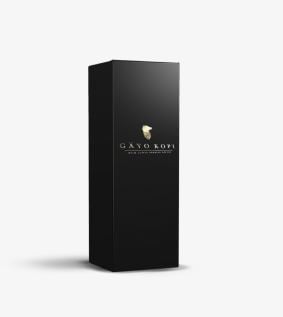Co-founder of the company, Jeff Bickley, who is the CEO of a branding agency with locations throughout the US, told BeverageDaily a trip to Bali, Indonesia, inspired the idea. While there earlier this year with his wife, they were introduced to Kopi Luwak coffee following a jungle trekking adventure.
Kopi Luwak (Luwak coffee) is sourced from the Asian palm civet, a cat-sized mammal in Indonesia.
The civet, a cousin to the mongoose, ingests coffee cherries as part of its varied diet.
During digestion the properties of the beans within the fruit are naturally altered through an enzymatic process where the coffee beans are infused with the flavors from berries and other fruits ingested by the animal, according to Bickley.
The natural enzymatic process of digestion removes any bitterness, giving the coffee beans that are left behind in the droppings a unique depth of flavor with an aroma of naturally infused spices. Kopi Luwak is then collected from the jungle and processed by trained farmers.
“It was unlike anything I had ever tasted,” Bickley said.
Described as the “most rare specialty coffee,” Kopi Luwak can reach prices upwards of $1,000 per pound.
Fraudulent certification runs rampant
However, what Bickley did not realize during his first sip of Luwak coffee was that much of the coffee marketed as “Certified Wild” is produced using caged civets fed a diet of solely coffee cherries, wreaking havoc on its digestive tracts.
Upon returning to the US, Bickley soon realized that he could not find a legitimate wildly-sourced Kopi Luwak coffee anywhere in the US and also came across a wealth of information on fraudulent certification.
According to the company, most certifying organizations require producers to pay a fee, after which a certifying official visits the farm for a one-time inspection. As long as there are no caged civets on the property during that inspection, certification is granted.
“Many producers have no problem at all saying that their coffee is certified wild Kopi Luwak, when in fact upon further investigation, it was not,” Bickley said. “It was really discouraging.”
According to PETA, coffee being marketed as “Certified Wild Kopi Luwak” is rarely actually sourced from the wild: it is 50 times more likely to be from caged civets than it is from the wild.
Bickley eventually made connections with an individual who had obtained certification from the Indonesian government that ensured each and every batch of wild-certified Luwak coffee was not sourced from caged civets. Bickley then began importing the product to the US.
While the company wants as many people as possible to taste the rare imported coffee, “we also want to educate people about the underbelly of this,” Bickley said.
"If done correctly, as in truly sourced from wild civets, Luwak coffee is great for the animal, their habitat, and the community that's farming this coffee."
Steep price tag aimed at gifting market

Wild-certified Gäyo Kopi coffee will cost consumers at least $115 for the smallest box (3.5 ounces) of Luwak coffee. The larger quantities include a 7.06-once and 14.12-ounce package priced at $207 and $375 respectively.
Most of the orders the company received last week were for its smallest box, but Bickley believes that Gäyo Kopi has the ability to go beyond an audience with a large amount of disposable income.
“The price point of $115 for a 3.5-ounce box really puts it in reach of virtually anyone that either enjoys great coffee or a specialty coffee fan,” Bickley said. he added that it could also be for those looking for a gift for the coffee aficionado in their life.
“It’s that gift market that we really see as being promising,” he added.
